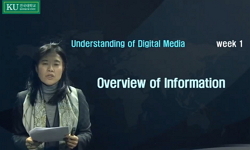Background and Objectives: Virtual reality (VR) applications change the perception of reality, resulting in a feeling of being in a natural environment. The occurrence of cybersickness (CS) when using VR applications is a well-documented side effect, ...
http://chineseinput.net/에서 pinyin(병음)방식으로 중국어를 변환할 수 있습니다.
변환된 중국어를 복사하여 사용하시면 됩니다.
- 中文 을 입력하시려면 zhongwen을 입력하시고 space를누르시면됩니다.
- 北京 을 입력하시려면 beijing을 입력하시고 space를 누르시면 됩니다.
https://www.riss.kr/link?id=A109540677
-
저자
Uğur Emel (Acibadem Mehmet Ali Aydinlar University Vocational School of Health Sciences Audiometry; Audiology Department, Acibadem Altunizade Hospital, Istanbul, Istanbul, Türkiye) ; Kurter Asime (Audiology Department, Acibadem Atakent Hospital, Istanbul, Türkiye) ; Aydın Çağla (Istanbul Aydin University Institute of Graduate Study-Health Sciences Audiology, Istanbul, Türkiye) ; Konukseven Bahriye Özlem (Istanbul Aydin University Institute of Graduate Study-Health Sciences Audiology, Istanbul, Türkiye)
- 발행기관
- 학술지명
- 권호사항
-
발행연도
2025
-
작성언어
English
- 주제어
-
등재정보
KCI등재,SCOPUS,ESCI
-
자료형태
학술저널
-
수록면
57-63(7쪽)
- DOI식별코드
- 제공처
-
0
상세조회 -
0
다운로드
부가정보
다국어 초록 (Multilingual Abstract)
Background and Objectives: Virtual reality (VR) applications change the perception of reality, resulting in a feeling of being in a natural environment. The occurrence of cybersickness (CS) when using VR applications is a well-documented side effect, and the Simulator Sickness Questionnaire (SSQ) has been used to assess CS. Considering the speed of VR technology development, CS will likely become a frequently researched and discussed topics in the near future. Therefore, the aim of this study was to conduct a Turkish validity and reliability study and introduce the SSQ to Turkish medical literature.Materials and Methods: A total of 160 healthy individuals (80 females and 80 males) aged >18 years (28.4±7.2 years) were included in our study. The SSQ was provided to the participants through Google Forms before and after the VR provocation experience and within the scope of the test and retest protocol.Results: The reliability and internal consistency of the questionnaire were observed at a high level (Cronbach’s alpha=0.854, Spearman-Brown coefficient r=0.871). Factor analysis was performed and the questionnaire was divided into three subfactors, consistent with the original questionnaire. In the responses obtained from the participants before and after VR provocation, statistically significant differences were observed in 13 of the 16 items in the questionnaire that are related to VR provocation (<i>p</i><0.05). Statistically, the differences in fatigue, dizziness, and vertigo were greater in females than in males (<i>p</i><0.05).Conclusions: The Turkish version of the SSQ is an effective tool for measuring the side effects in VR environments. The inclusion of the SSQ in the Turkish literature enables the inclusion of non-English-speaking participants in research, especially for disciplines that consider peripheral and central vestibular disorders.
동일학술지(권/호) 다른 논문
-
Update on Medical Management of Acute Peripheral Facial Palsy
- 대한청각학회
- Kim Sang Hoon
- 2025
- KCI등재,SCOPUS,ESCI
-
- 대한청각학회
- Jamal Fatin Nabilah
- 2025
- KCI등재,SCOPUS,ESCI
-
- 대한청각학회
- Lee Seung Jae
- 2025
- KCI등재,SCOPUS,ESCI
-
An Exploratory Study of Peripheral Vestibular System in Users of Personal Listening Devices
- 대한청각학회
- Dessai Teja Deepak
- 2025
- KCI등재,SCOPUS,ESCI






 KCI
KCI






